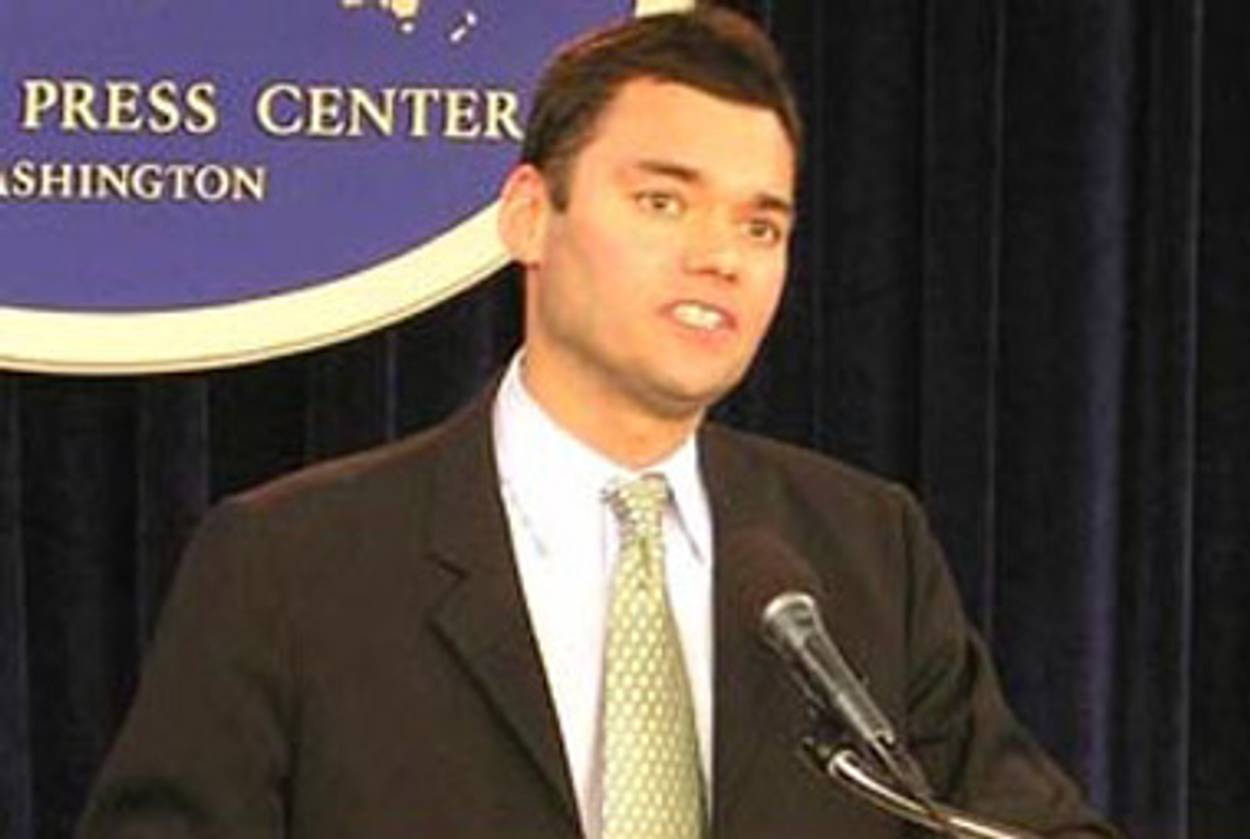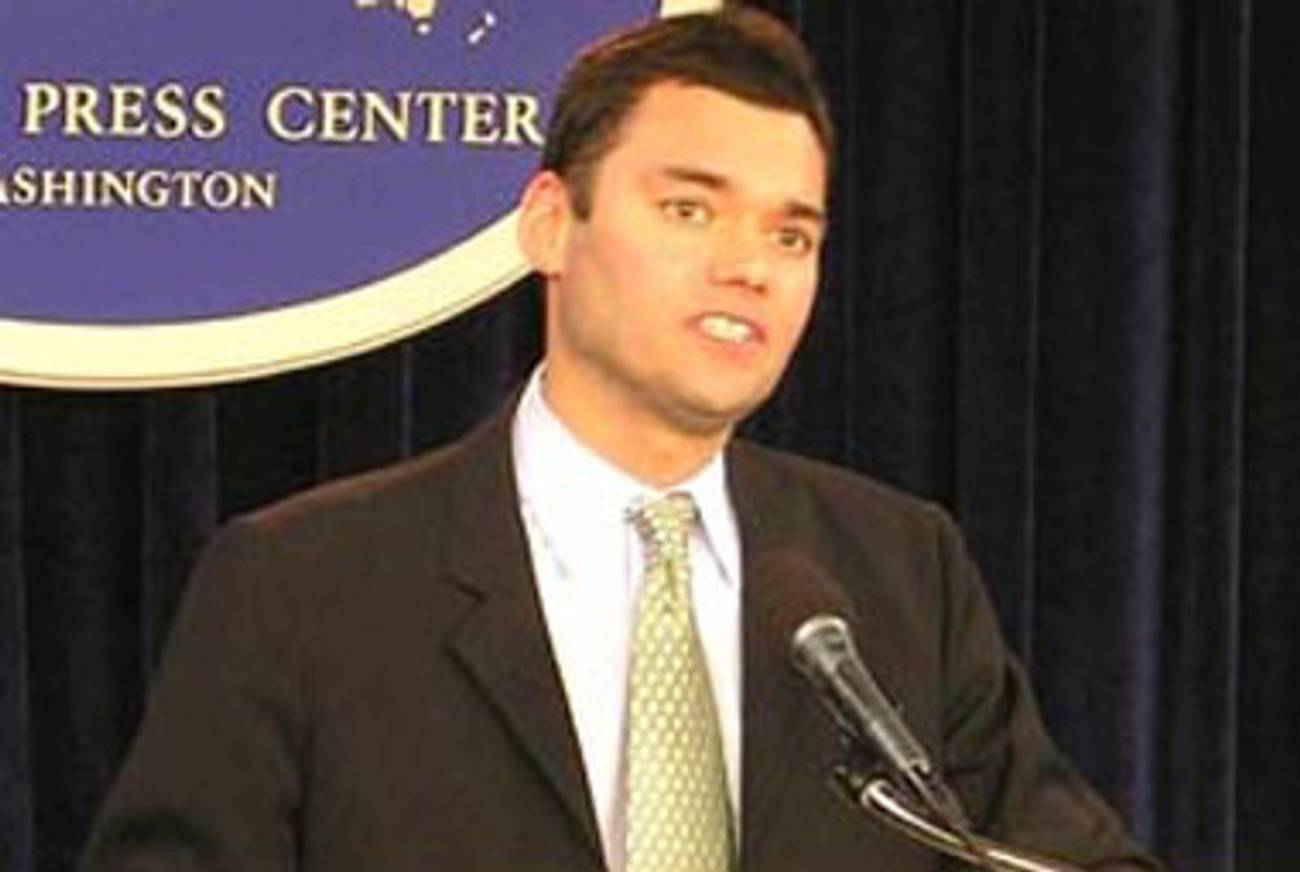Beinart Speaks to Tablet
Defends NYRB piece, which was originally for NYT Mag




As you know, Peter Beinart has penned a blockbuster essay in the New York Review of Books condemning the Israeli leadership for their illiberal treatment of the Palestinian question, and the American Jewish leadership for making Zionism unattractive by insisting on near-unquestioning support. I talked to Beinart (whose new book, The Icarus Syndrome, comes out June 1) today about why he wrote the article, why he published it where he did—it was originally supposed to run in the New York Times Magazine, but “there was a stylistic disagreement, not an ideological one”—and what he expects in response.
What prompted the essay? Why now, when you previously have not written much about Israel?
Having kids definitely played a role. I think it made me think about not just my Zionist identity, but what kind of Zionism was available to them. And the more I thought about that, the more I began to worry. I also think that we all operate at intellectual levels and emotional levels, and for me I just decided … There was this story in the New York Times about the Gaza War, about the house in Gaza where they found the children whose parents were dead. What you may find, if you do have kids one day, you are affected at an emotional level more strongly by certain things, in a way you may not be entirely prepared for. I think that’s a good thing, it’s primordial. I know people develop all kinds of shrewd and sophisticated and clever ways of explaining anything that happens, but when I read the story I just thought I was not in the mood to try in some clever way to explain it away. And the fact that I felt I was supposed to just sickened me a little bit.
That’s not to say there are never gonna be civilian casualties in war. But knowing the people who are running Israel now. … The amazing thing about Netanyahu’s book, which is a pretty long book, is there is not a single word of human empathy for the suffering of the Palestinians or Arabs. It was for me such a chilling book in its willingness to essentially. … there was something so inhuman about it, I felt. I just felt like that wasn’t something that I wanted to apologize for.
Why did you publish the essay in the New York Review of Books, which has a reputation of being distinctly left-wing, particularly on the question of Israel?
In all honesty, it was originally supposed to be New York Times Magazine. I don’t have any ill will, but there was a stylistic disagreement, not an ideological one.
There are not very many places anymore where one can write long, serious essays. Secondly, although my piece is a piece about liberal Zionism—I don’t believe in a binational state—Jeff Goldberg is my friend, but I disagree with him when he says NYRB is an anti-Israel. It publishes some of the most important people on the Israeli left. … We should draw inspiration from those people who share our values in Israel. If you’re going to tell me the New York Review of Books is an anti-Israel publication, that just makes no sense. I don’t think I’m anti-Israel. I think people throw around these terms way too promiscuously.
But doesn’t this make it easier for those who disagree with you to simply dismiss the piece given where it appeared?
I did think about that. You’re right: People will say that. And I think it’s a little bit silly. I wrote 5000 words. If you disagree with what I said—and there are reasonable disagreements—if you just say, ‘Oh well, it’s in the New York Review,’ that’s a sign that you’re looking for an opportunity not to engage with it. Tell me where I’m wrong! I can think of counterarguments.
Have your politics shifted over time? In 2004, under your leadership, The New Republic endorsed Joe Lieberman for president. I don’t think he would agree with your essay.
Yeah, I think I have shifted, not only on this issue. Anyone who reads my new book will clearly see a shift. But I also didn’t really write about this issue very much at The New Republic. I do think I’ve shifted, and it’s partly personal things, and also I didn’t envision that you were going to have a government of Shas, Avigdor Lieberman, and Benjamin Netnayhu.
I think maybe the most provocative sentence in your essay is, “Not only does the organized American Jewish community mostly avoid public criticism of the Israeli government, it tries to prevent others from leveling such criticism as well.” Could you clarify how exactly it does this?
I think by very, very harshly attacking organizations that are willing to be critical of Israel. It clearly does that. We have free speech, but I think the agenda is clearly to basically try to get human rights organizations to carve out an exemption for Israel in which only the tamest of criticism is permitted. I think that we should expect international human rights organizations to be able to be as critical as Israeli human rights organizations. If they’re not self-hating, their international analogue isn’t anti-Semitic or anti-Israel, unless there’s real evidence that there’s real animus. Call me naive, but I don’t see it.
Why is there no mention of J Street? It seems like you would have much sympathy for it, and in fact its response was very positive.
I’ve actually never been to a J Street event and don’t know that much about the organization. I’m broadly sympathetic. The piece is not on behalf of any organization. I wish J Street well. My fear is that liberal American Jews won’t care enough. But I do believe that for a lot of secular American Jews the choice is between J Street Zionism and no Zionism. I guess I didn’t know what to say about the organization.
Your piece spends most of its time diagnosing the problem. What’s the solution?
Partly I was appealing in a way to the people who make up the communal Jewish leadership of the United States, that I think what they should do—this may be naive—is be conduits to hear from those people in Israel who genuinely cherish liberal and democratic values. Those people who need our solidarity, and who could be genuinely inspiring figures, in the same way that many American Jews were inspired by Abraham Joshua Heschel when he went South during the civil rights movement.
I really believe that if Israel becomes more and more callous toward the right and dignity of non-Jews, it is naive to believe it will not become more callous to the rights and dignity of certain Jews. I think the two cannot be separated. Whether it’s the rights of gays and lesbians, or the rights of women who want to pray at the Kotel, or soldiers who want to speak out.
When we protect the right of Arab Israelis, we’re also protecting the rights of Jews against the government, and a Haredi population that I think at times is willing to use violence.
The Failure of the American Jewish Establishment [NYRB]
Earlier: In U-Turn, Beinart Slams Israeli, AIPAC
Marc Tracy is a staff writer at The New Republic, and was previously a staff writer at Tablet. He tweets @marcatracy.